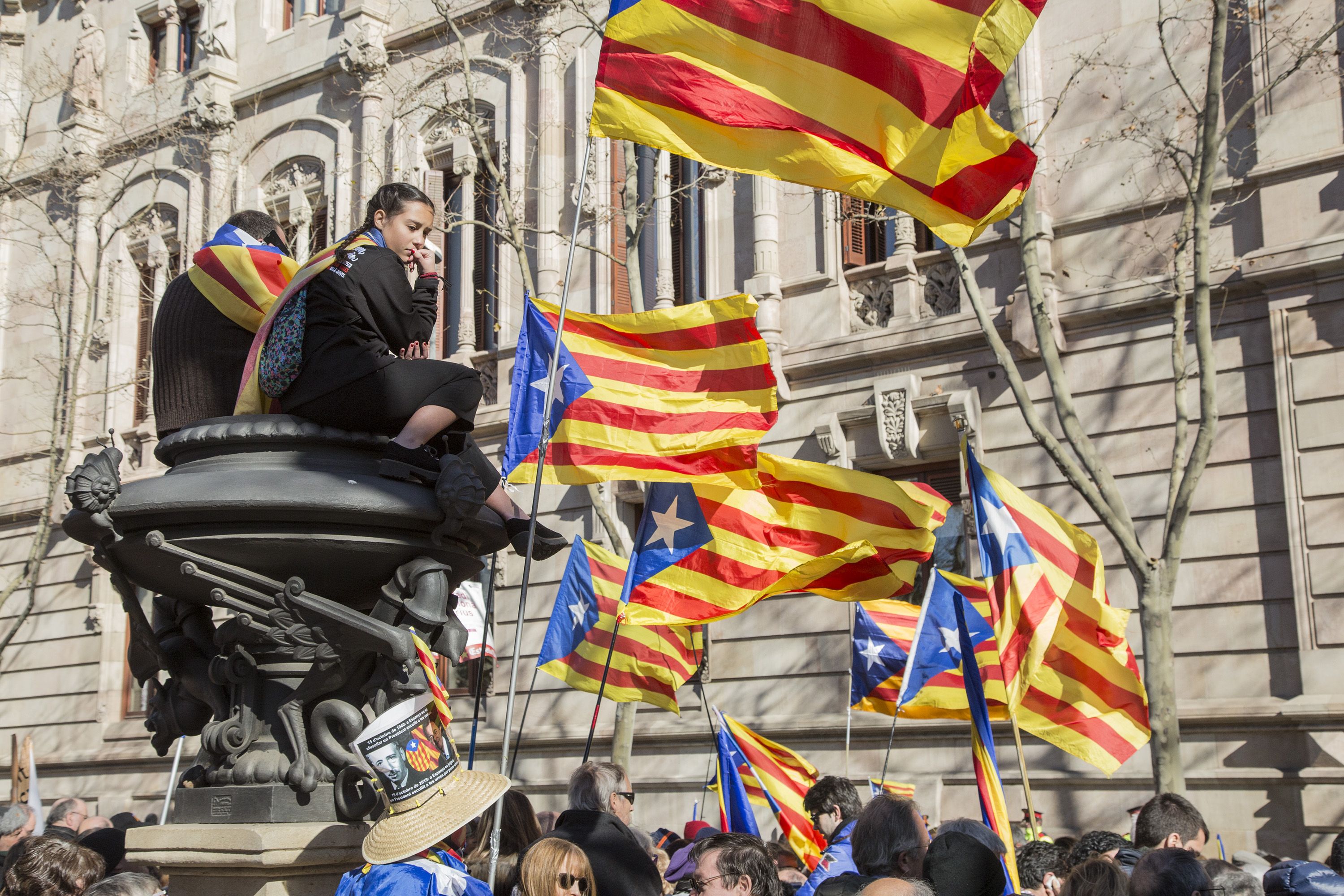“Catalonia is comprised of a democratic and social Republic of Law”. This is the first article of the Law of Transitional Jurisprudence and Foundation of the Republic (link in Catalan) presented today to the record of the Catalan parliament and which will be the "supreme rule of the Catalan legal system" until the approval of the Constitution of the Republic, according to the text. These are the key points:
- Article 4 sets that the EU law “keeps its nature and position with respect to the internal law” and that Catalonia “acts with respect for international law”. Article 13 establishes the conditions of the legal system for continuity, 14 makes clear the continuity of EU law and 15 the continuity of international treaties.
- Article 7 defines Catalan nationality of origin and 8 the conditions for the acquisition of Catalan nationality, whilst article 9 establishes that the conferral of Catalan nationality does not require the renunciation of Spanish nationality nor of any other.
- The staff of the Catalan administrations “keep the same connection and work and remuneration conditions”, according to article 17, whilst the staff of the Spanish state who work for the general administration of Catalonia, local administration, universities or legal administration "will be incorporated into the public administration of Catalonia" with the same work and remuneration conditions, unless they renounce them.
- Article 19 determines the subrogation of the Catalan State in the position of the Spanish State in contracts, conventions and agreements.
- The text doesn't set a unique official status of Catalan, rather article 24 guarantees the linguistic rights of Catalans according to the law of linguistic policy and proclaims non-discrimination for linguistic reasons.
- The right to suffrage is reserved for people with Catalan nationality (art. 26).
Institutional system
- Section IV defines the institutional system, starting with the Parliament, the Presidency, the Government and the Administration. "The president of the Catalan government is the head of state and assumes its highest representation", according to article 34, until the Constitution is approved.
- This section includes the Electoral Syndicate foreseen in the law for the Referendum and which will have to regulate the constitutional elections. This includes the new possibility of an administrative-electoral appeal.
- The Council of Democratic Guarantees will be binding unlike the current Council of Statutory Guarantees (art. 61).
Judicial Power
- In the chapter Judicial Power and Administration of Justice, the continuity principle is maintained as well as the places of civil servants (art. 68). It establishes that the Supreme Court of Justice of Catalonia will become the Supreme Court (art. 71) and its military jurisdiction will be eliminated. The Court's Government chamber will comprise of the presidents of the provincial audiences with five magistrates or judges chosen by the Parliament.
- The general public prosecutor of the Republic will be nominated by the Parliament and will enjoy full independence, without hierarchical dependence. A Superior Chamber of Guarantees will be created to assume all the functions of the current Spanish Constitutional Court and to protect all the rights that are proclaimed in this law (art.74).
- This chapter explains how the National Audience will be superseded (art. 77) and clause 79.4 gives amnesty to everyone facing charges related to the independence process or the constitution of the new Republic.
- Section VI includes the chapter related to Finances. Article 80 establishes that the Catalan government assumes authority over taxes.
- Article 84 foresees the assumption of authority over customs and the land registry.
Constituent Process
- Section VII discusses the constituent process, which will have three successive phases, according to article 86: the first, the participatory process; the second, constituent elections and writing of the Constitution by the Constituent Assembly; and the third, the ratification of the Constitution in a referendum.
- The participatory process will take place in the six months following the proclamation of the result of the independence referendum, and will end with the calling of a Social Constituent Forum, formed of representatives of the civil society and of the political parties (art. 87). The results will be binding.
- Once the participatory process has been finished, the president of the Republic will summon elections to form the Constituent Assembly, which will have full powers to draft a Constitution. The Assembly will assume the functions and abilities of the Parliament, even the choice of the president of the Republic.
- The new Constitution “has to be approved by more than 3/5 of the members of the plenary assembly in a final vote on the whole text.” “If this majority is not attained, in the second vote an absolute majority is sufficient, if this is not obtained either, deliberations will continue and new proposals submitted to votes until it its attained."
- Once the Constitution is approved by the Assembly, it will undergo ratification in a referendum, as defined in article 89. The Assembly will then be dissolved and elections will be called.
- The law ends with three final rulings, the last of which establishes that the law will enter into effect once approved by the Catalan Parliament and the terms of the Referendum Law are fulfilled, in other words, the "yes" vote winning in the independence referendum.

